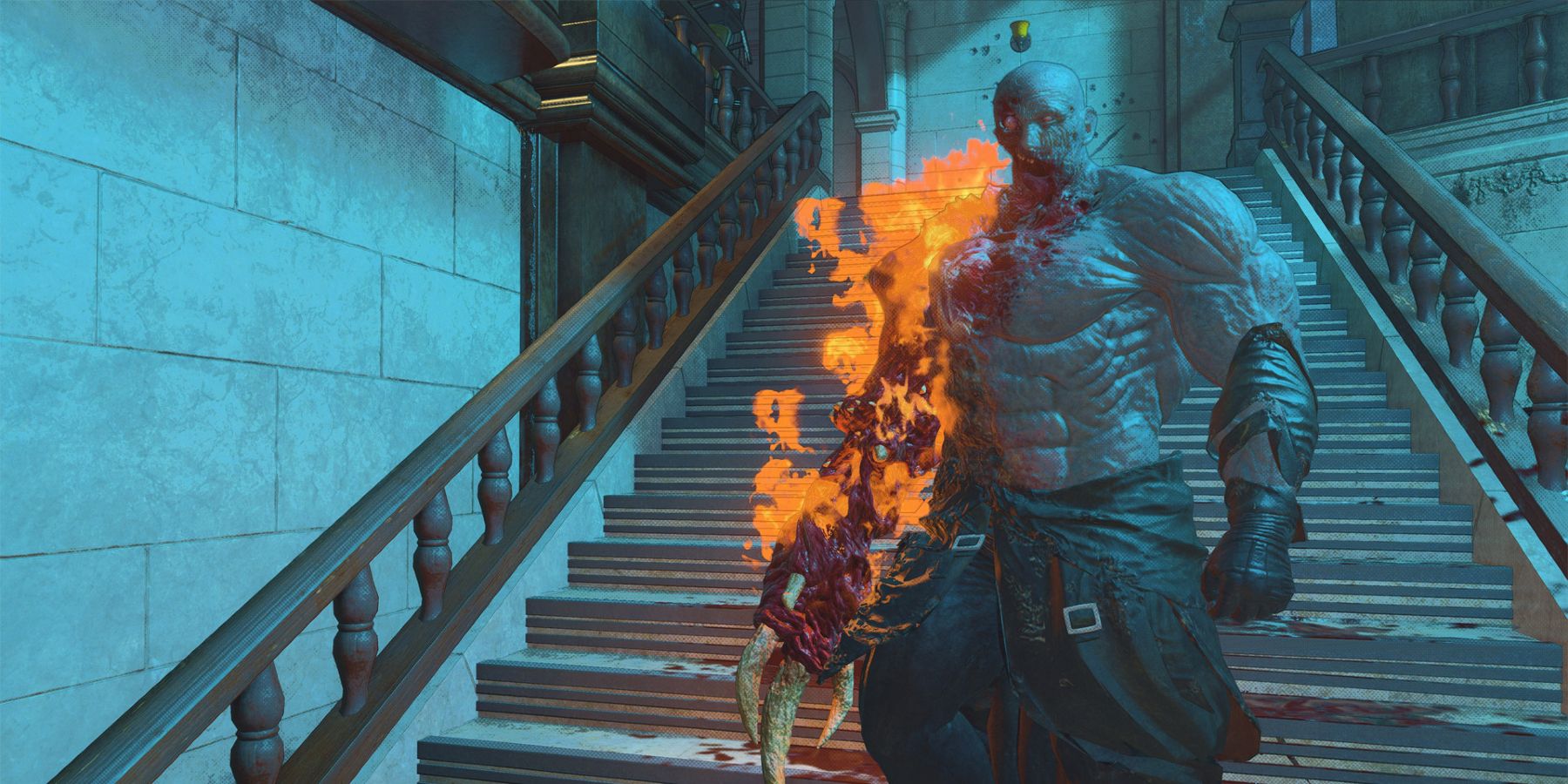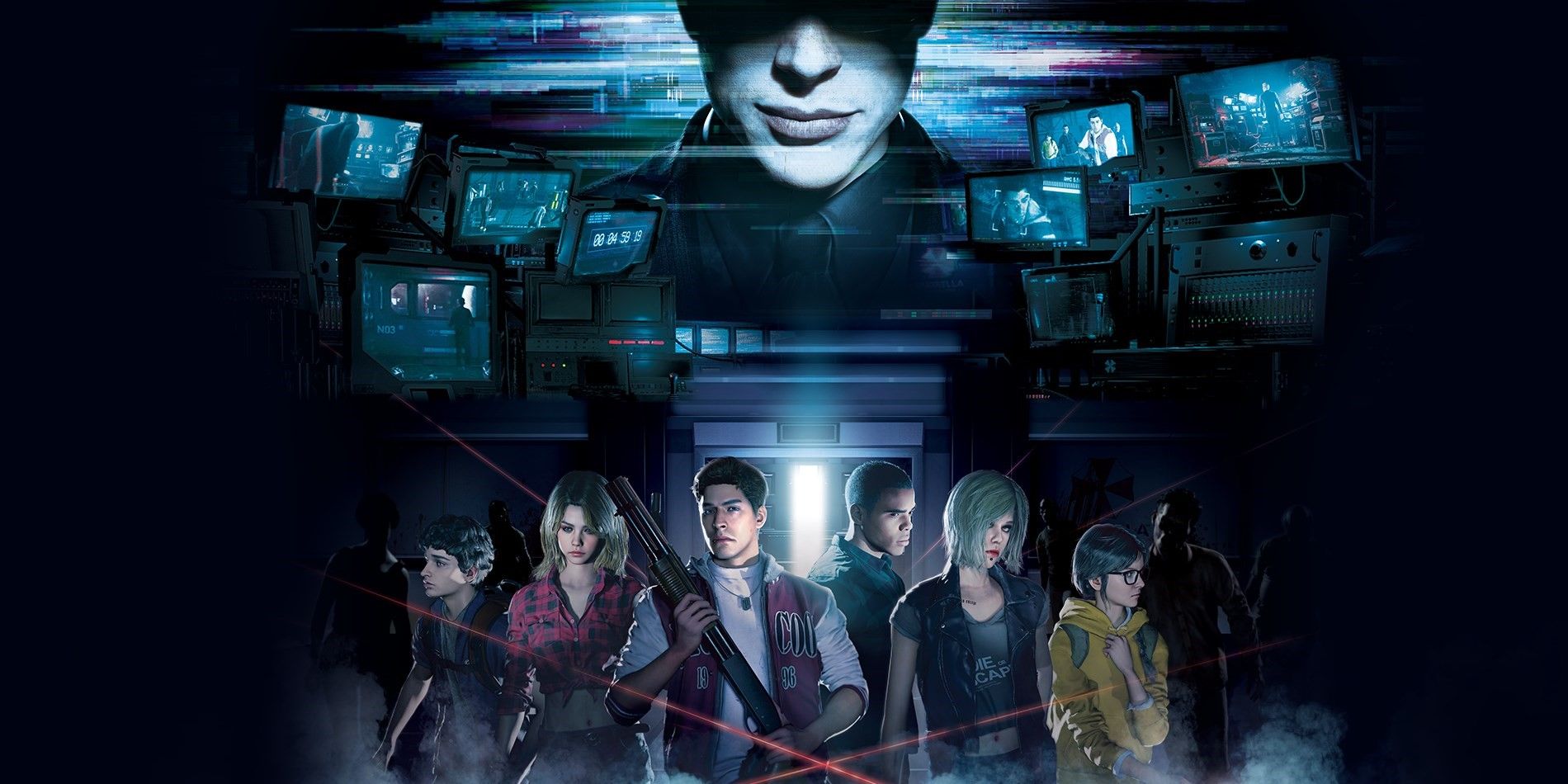It seems like Resident Evil has long been struggling to create a popular multiplayer game. The most recent blow to Capcom's efforts to turn the legendary survival horror franchise toward multiplayer is the repeated delays of Resident Evil Re:Verse, a third-person shooter that was supposed to come packaged with Village, the most recent mainline title. The Resident Evil universe seems ripe for a successful multiplayer game, but it is apparently a difficult task, since none of the recent attempts have managed to capture a large and dedicated player base.
Much of Resident Evil's struggles in the multiplayer realm may come from a disconnect between the mainline single player games and how multiplayer games typically play. Even the more modern entries in RE7 and 8 are cumbersome by design. Inventories have limited space, Resident Evil characters often can't run very fast, and combat is not as fluid as other first person shooters. Attempts at moving away from these design choices - namely Resident Evil 6 - were often criticized for moving the series too far into the action genre instead of the traditional horror.
The purposefully slow gameplay of most mainline Resident Evil games simply doesn't seem to translate well to multiplayer, and thus one problem is a question of attracting the series' dedicated fans. Village has been a success sales-wise, and garnered generally very favorable reviews, so the return to more dedicated survival horror is apparently paying off. This begs the question: how may people are really interested in a third-person shooter like Resident Evil Re:Verse?
Resident Evil Mostly Ignores Its Better Multiplayer Ideas
Re:Verse certainly looks like it could be entertaining, but it also doesn't feel much like a Resident Evil game. The run-and-gun action of its deathmatch style gameplay would be unrecognizable from the rest of the series if it didn't involve Resident Evil characters and maps. Last year's Resident Evil: Resistance more successfully captured the spirit of the franchise with its focus on Umbrella Corporation test subjects. Although not entirely the same gameplay, Dead By Daylight has been enduringly successful as an asymmetrical multiplayer horror game because of its continued support.
Resident Evil Resistance was tacked onto Resident Evil 3's remake in order to bolster the amount of content, and ultimately felt like a somewhat lackluster addition. This puts it into the same category as something like Village's return of the Mercenaries game mode - a fun bonus that was nice to have, but clearly not Capcom's priority. It's impossible to say whether or not Resistance could've been worth more with further resources dedicated to it, but it seems that Capcom is uninterested in finding out.
In terms of mainline titles, Resident Evil 5 and 6 had two-player co-op, but simply adding a second person to the game is meeting the bare minimum requirements to call a game "multiplayer." Unfortunately, Resident Evil once had far more involved co-op experiences in Resident Evil Outbreak and its sequel for the PlayStation 2. The games got a middling reception, but a more survival-oriented game in the vein of Left 4 Dead could have a lot of potential for RE.
The established tone and gameplay that has made the Resident Evil franchise incredibly successful does not translate particularly well to the multiplayer landscape. The methodical survival horror elements don't fit well into action-packed multiplayer, as evidenced by Re:Verse's general abandonment of traditional RE gameplay. The franchise has had some interesting and promising attempts in the past, but were ultimately abandoned or not fully realized, possibly due to the disconnect between what makes a Resident Evil game successful and what is typically found in a multiplayer game.


